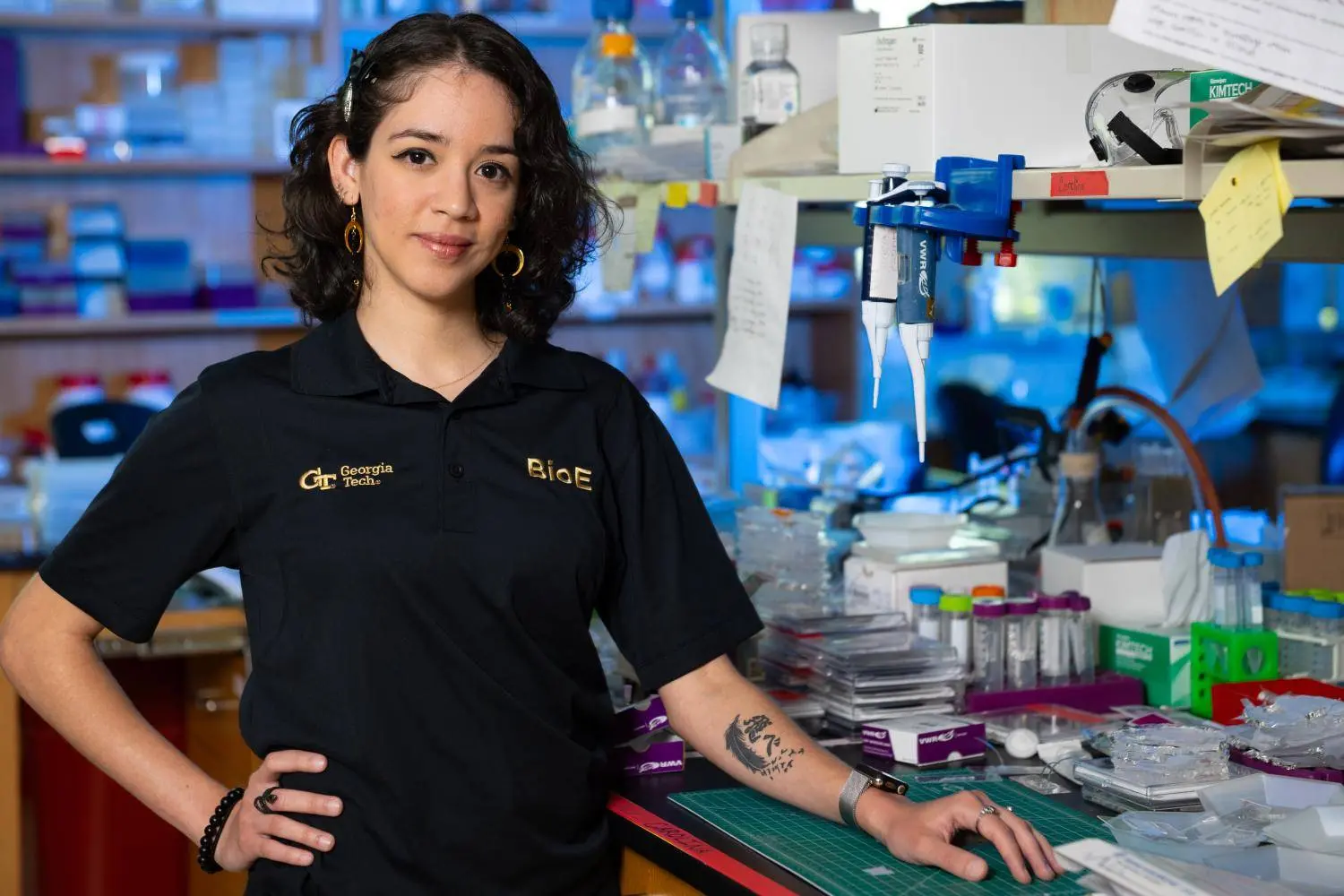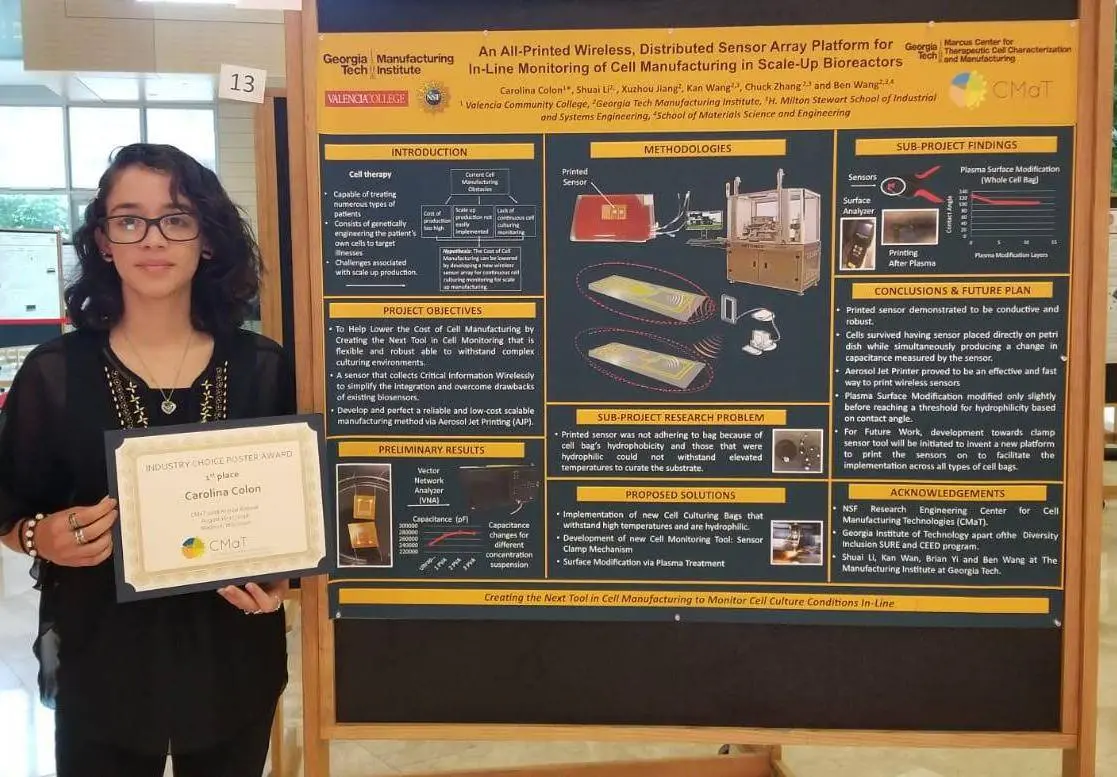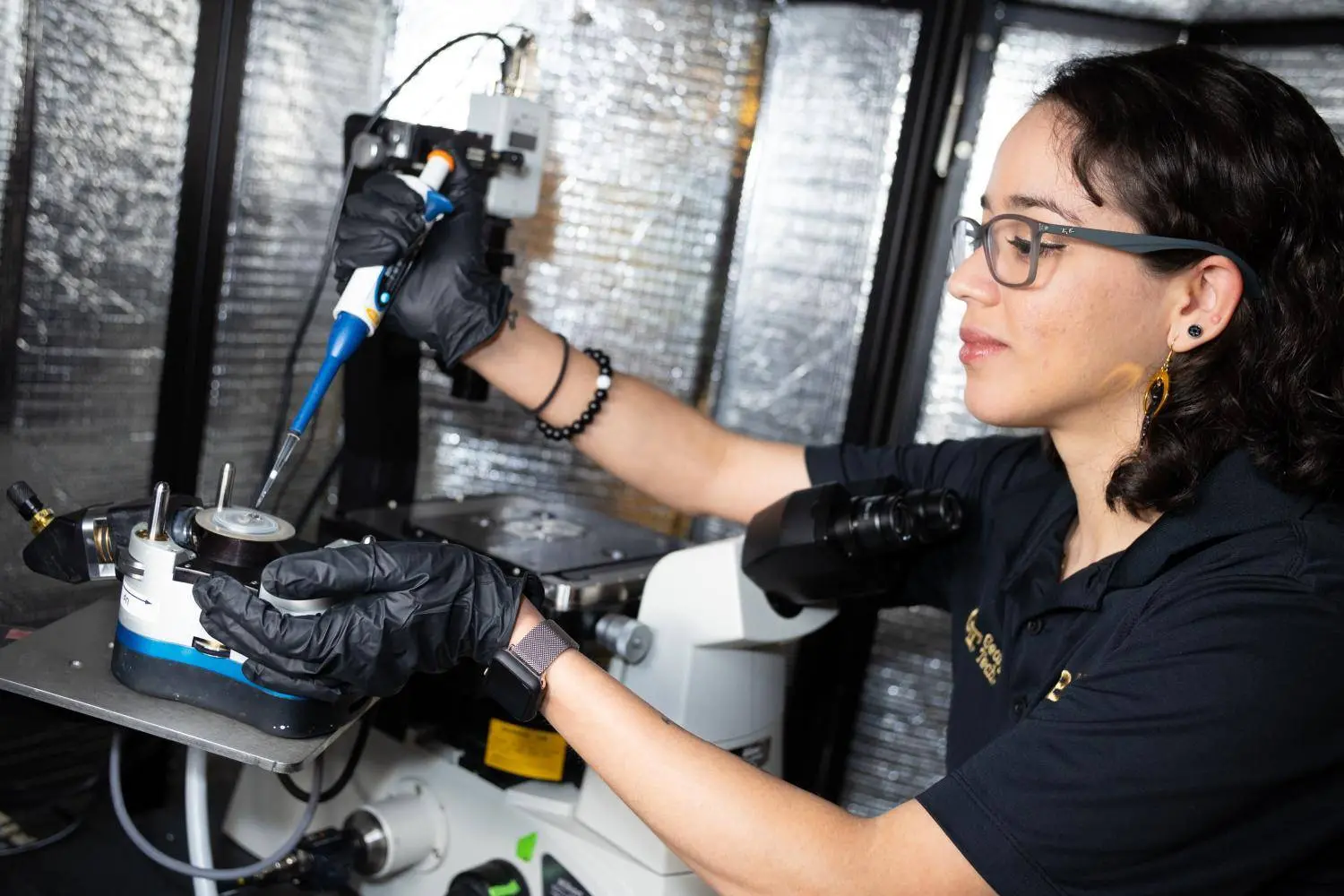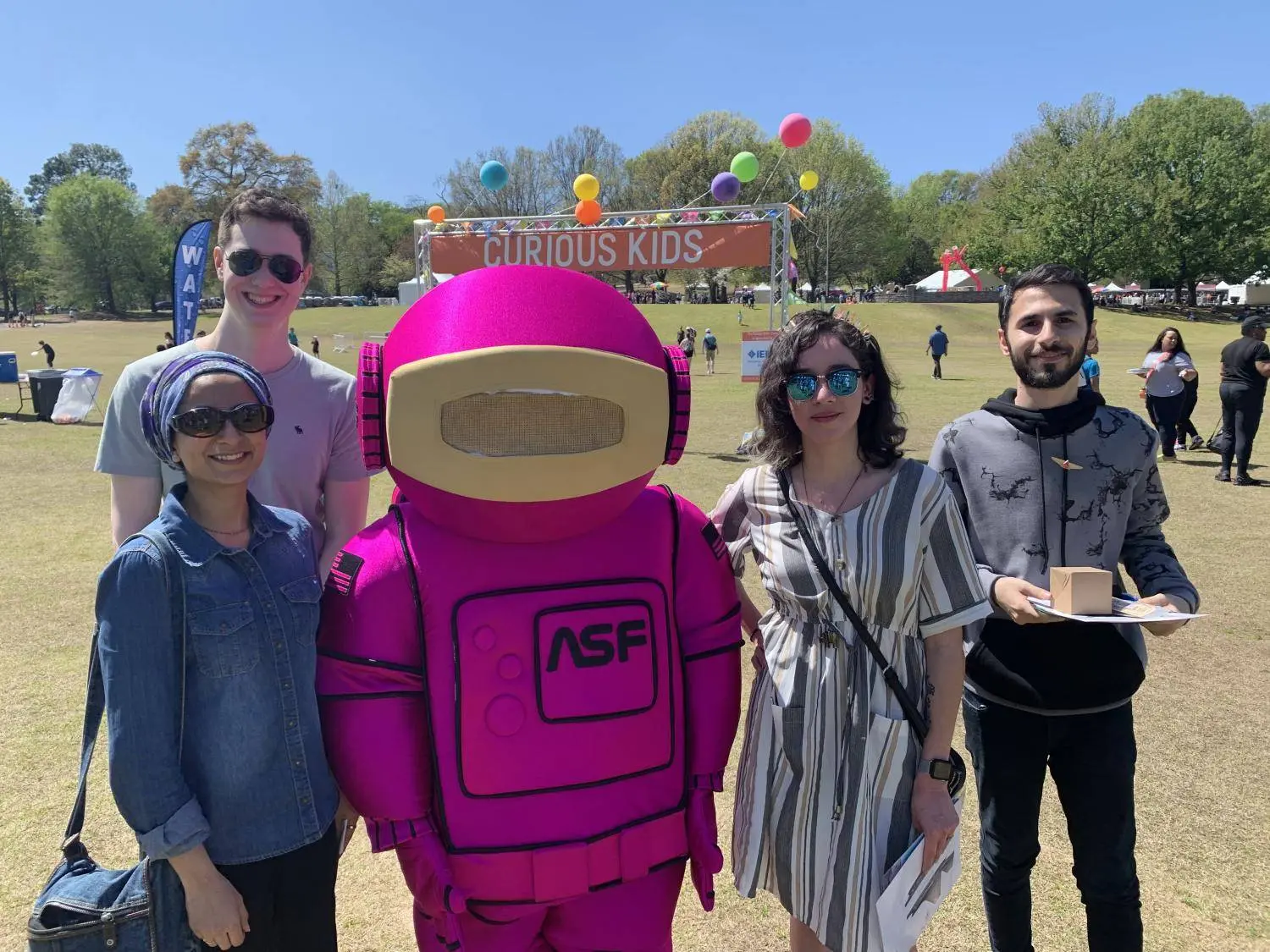Carolina Colón is Society of Hispanic Professional Engineers’ National STAR Role Model for 2023
Oct 10, 2023 —

Bioengineering Ph.D. student Carolina Colón has been recognized with the national STAR Role Model Award by the Society of Hispanic Professional Engineers. (Photo: Candler Hobbs)
Carolina Colón was 7 years old when she decided she was getting a Ph.D. and starting a lab filled with students with lower grade point averages but lots of untapped potential.
It was an ambitious plan for a first grader, and her life journey has been more challenging than she might have imagined. But now she’s laying the foundation for that childhood dream in her second year of Georgia Tech’s bioengineering doctorate program.
Along the way, she’s making a point to help others see paths and opportunities she didn’t — whether they’re fellow Hispanic students interested in engineering, first-generation college students, or especially community or technical college students.
Her efforts to build community — as an undergraduate student at two colleges and now among her fellow grad students in Todd Sulchek’s lab — are among the many reasons the Society of Hispanic Professional Engineers (SHPE) has recognized Colón with its national STAR Role Model Award.
The award is the highest honor for a SHPE graduate student member, reserved to recognize “unselfish and outstanding contributions of an honoree to their SHPE student chapter and the Hispanic community while maintaining academic excellence.”
Colón said she doesn’t really see herself as a role model — except, hopefully, for her 14-year-old sister. She’s a gamer, so instead she drew comparisons to nonplayable characters in video games, like those who might give the player a side quest.
“I will be the friend there for you to hold your hand or even help you beat people up if you need to, but I’m a go-with-the-flow type of person in that regard,” Colón said. “I will be there as a friend, if you want me to. I'll be there as a mentor, if you want me to. I will be the person to clear the path, if you want me to. I don’t view it as the term ‘role model.’ I view it more as like somebody who’s going through the same circumstances that’s willing to lend a helping hand.”
Not the Path She Planned
Colón grew up in Puerto Rico and had a plan for her education. But life’s circumstances changed, and her family moved to Florida with little notice when she was in high school. Finances were tight, and they even experienced homelessness for a time.
Colón adapted. She landed a job at an Orlando Marriott hotel that was a hub for conferences often featuring scientists and researchers. The job gave her the opportunity to learn how to multitask, talk to people, and solve problems.
After high school, Colón enrolled at Valencia, a two-year community college in Orlando. She was working far more than full-time hours while chipping away at her education. And then she saw an opportunity for a summer research experience at Georgia Tech.
In truth, she wasn’t sure she even qualified since she was a community college student. She applied anyway and was accepted.
“I believe that moment single-handedly changed my life forever,” she said. “I learned about the program at one of the lowest points of my life. My car had been stolen. My dad had suffered a mini stroke. I was rejected for a job that I should have had at Marriott. I was looking for a new path.”
The program, part of the National Science Foundation Engineering Research Center for Cell Manufacturing Technologies (CMaT), exposed Colón to the power of cell therapies, particularly for cancer. She had lost several family members to various forms of the disease, so the idea of new treatments was appealing — especially finding ways to make them more affordable and accessible.
Colón worked that summer in former Georgia Tech Manufacturing Institute Executive Director Ben Wang’s lab and came back for a second summer the following year. She finished her associate degree and moved to Florida Institute of Technology (FIT) to study aerospace engineering. The idea was to marry her interest in space and astrobiology with engineering design processes while keeping an eye toward her newfound interest in cell therapies.
Deep Space First Aid
For her Ph.D., Colón studies cell mechanics, like cell stiffness and relaxation, aiming to use those properties as a marker for longevity and potency of engineered cell therapies.
“My sci-fi dream is to do cell therapies for astronauts in space. If we do long-term space travel, astronauts are going to need a first aid kit; they can't just come back to Earth,” Colón said. “It’s a hefty goal. Cell therapies could become a one-type-fits-all therapy that you could change to treat cancer due to radiation exposure or for tissue or bone regeneration. I want to help open the door to bring these therapies into the space environment.”
Colón, a GEM fellow supported by the Georgia Tech Research Institute (GTRI), is co-advised by Jud Ready, a faculty member in the School of Materials Science and Engineering and principal research engineer at GTRI. He said Colón has increased teamwork and morale while creatively expanding knowledge of her lab mates’ different cultural backgrounds.
Sulchek credited her with creating a tight-knit community in his lab, which added six first-year grad students last year.
“I was struck by Carolina’s tremendous drive to learn and succeed. She is now a core citizen in my laboratory, leading two research collaborations and coordinating the social aspects of our group,” said Sulchek, Regents’ Innovator and professor in the George W. Woodruff School of Mechanical Engineering. “I nominated Carolina for one primary reason: I believe she is perhaps a generational talent that can help the Georgia Tech community in research excellence and the recruitment of more women and underrepresented minority students.”
Colón is active in Georgia Tech’s SHPE chapter and still connected with the SHPE group at FIT and with students at Valencia. She also is vice president of the Woodruff School Graduate Women organization, which has become one of the places where she’s advocating for students who start their college careers at two-year institutions like she did.
“That stage was when I was the most naive about opportunities available to me. We pay a lot of attention to undergrads, but community college students get forgotten. So I’m very passionate about advocating for those students.”
Colón will accept her STAR Role Model Award in early November at the SHPE Convention.
“I don’t think I’ve ever won something like that,” she said. “It feels like the struggles that brought me to this point weren’t wasted. And it can show other people that no matter what you go through, you can achieve whatever you want.”

Colón participated in several summer undergraduate research experiences at Georgia Tech while she was a student at Valencia Community College in Florida.

Colón’s Ph.D. studies involve engineered cell therapies. Her first love was space, so one day she'd like to help creating therapies to help astronauts during long-term space travel. (Photo: Candler Hobbs)

Colón and friends at the Atlanta Science Festival
Joshua Stewart (jstewart@gatech.edu)




